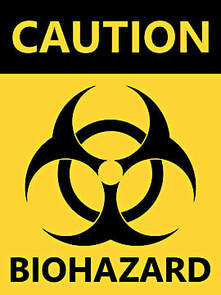
From all indications, the Biden administration appears more concerned with investigating the origins of the coronavirus than taking the necessary steps to prepare for and protect us from the next pandemic. President Biden recently gave intelligence agencies 90 days to search for clarity on whether a lab leak could have sparked the pandemic.
Regardless of what any investigation reveals, one thing is true: The risk of a natural pathogen, a lab-enhanced germ, or a bioterrorism event is escalating:
- The destruction of natural habitats is accelerating worldwide, bringing the more than estimated 800,000 viruses that are potentially zoonotic (able to jump species from animal to human) in closer contact with us. There is not much we can do to stop this because national sovereignty (see Brazil’s intentional destruction of the Amazon rain forest) forecloses any “dramatic” international action. Nevertheless, some multinational efforts (such as paying countries to stop habitat destruction) have met with modest success and should be pursued more vigorously.
More than 70 percent of newly emerging infectious diseases—such as HIV/AIDS, West Nile virus, SARS, MERS and avian influenza—come from animals. At a minimum, the Biden administration needs to revive the pandemic planning and defense offices, mechanisms and plans that Trump shelved. In addition, it needs to invest in and invigorate human and veterinary medical efforts to meet these threats.
- Biomedical research, while very important (e.g., COVID-19 vaccines), increases the risk that laboratory- and research-related accidents could let a dangerous pathogen escape. High-containment disease research labs are proliferating for purposes of biodefense, but also to undertake so-called “gain-of-function” studies that make germs more dangerous. These hazards could be mitigated by increasing the current lax level of oversight.
- In 2001, U.S. government microbiologist Bruce Ivins was accused of murder for sending letters containing anthrax. He committed suicide on the eve of his indictment for the murders, so his actual guilt or innocence was never adjudged. However, the circumstantial evidence is strong--the DNA of the anthrax strain in the letters matched that in his laboratory. A search of his home turned up “hundreds” of similar letters. This internal security risk has increased significantly since then. More than 20 new federal, and many more new private, biosafety level 3 and 4 labs have been built in recent years, meaning many more individuals now have access to incredibly lethal pathogens.
- The external security risk is even greater. U.S. rivals such as China and Russia engage in extensive bio -weapon research and, despite being signatories of international agreements to destroy their biological stockpiles, secretly maintain them. Smaller nations such as North Korea, Syria and Iran also engage in bio-weapon research and development. Non-state terrorist organizations such as ISIS and Al-Qaeda want to get their hands on bio-weapons. The devastation these weapons of mass destruction could cause is immense.
Finally, we need to strengthen our public health system. During the pandemic, it became clear that some of our public health agencies function poorly. Overall, the shortcomings of our disrespected, underfunded and uncoordinated public health system demonstrated that it was unprepared to respond effectively to a major health crisis on a national scale. Having learned nothing, eight “red” states recently enacted legislation restricting the authority of public health agencies to declare a health emergency and limiting their ability to order quarantines and isolation, a blatant politicization of something apolitical. In Ohio, the legislature gave itself the authority to override Department of Health emergency orders. Seven additional states are considering similar restrictive legislation. All of this will make it more difficult to combat future pandemics.
Joy and relief over emerging from almost a year-and-a-half of isolation, fear and anxiety over Covid-19 should not be permitted to put the very serious issues the pandemic exposed on the back burner.
Dick Hermann
June 25, 2021





 RSS Feed
RSS Feed